Hypnotherapy for imposter syndrome is to address the feeling that you somehow don’t belong. It means you’re constantly out of sorts. Never comfortable where you are.
Imposter syndrome appears in different ways, including low-level inner criticism or a more acute panic-like response to a specific stressor.
You have negative self-talk, distorted perceptions of reality, and a fear of being exposed as a fraud.
Usually you’re working against your better nature. You somehow believe you’re inadequate and an incompetent failure despite the evidence that shows your skilled and successful.
For most people it’s similar to General Anxiety Disorder (GAD). You feel excessive and uncontrollable worry about everyday things. Physically your symptoms can be a feeling of pain, fatigue, or shortness of breath, as well as emotional signs like irritability, restlessness, and poor concentration. They may also have trouble sleeping, feel easily startled, or unable to relax.
It’s as if you’re permanently on edge.
So what does imposter syndrome look like?
Generally you feel the need to over prepare for every project or task. You struggle to accept or ask for help from others. You feel panicked when someone gives you feedback, even if it's constructive criticism. You experience a lot of negative self-talk.
Basically, it’s exhausting.
But you’re not alone some famous people who have stated they have suffered from imposter syndrome including Tom Hanks, Lady Gaga and Tina Fey.
What causes imposter syndrome?
Usually it comes from a lack of safety or support in past relationships. A feeling of never being good enough. The result is a tendency to overcompensate for those who hurt us in order to restore a sense of balance and safety.
Also when you feel in the minority. Be it by race/ethnicity or gender. You’re underrepresented within your professional or academic environment. You take a look around and see very few people like you.
Imposter syndrome. The five man types:
(1). The perfectionist. You set excessively high goals. And if you fail to reach them your majorly doubt about measuring up. Sometimes you refer to yourself as a control freak - if you want something done right you feel you must do it yourself. The perfectionist in you means:
- You’re accused of micromanaging.
- Delegating is hard. And when you do so you eel frustrated and disappointed with the results.
- You set the bar really high (possibly unrealistically high) and beat yourself up for not being ‘cut out’ for it. Then you dwell on it for days.
- You cut yourself absolutely NO slack. Your work must be 100% perfect, 100% of the time.
(2). The superhero. It’s actually a cover up for your insecurities. Look out for the signs:
- you stay later at the office than the rest of your team, even past the point that you’ve completed that day’s necessary work
- you’re stressed when you’re not working. You think of downtime a s wasteful.
- hobbies and passions fall by the wayside
- there’s a feeling in you that you haven’t really earned your title despite the evidence to the contrary (say your degrees and achievements)
(3). The expert. You believe you’ll never know enough. So you feel you’ll be exposed inexperienced or unknowledgeable. Your behaviours include:
- Shying away from job applications because you don’t quite meet every single requirement
- You keep training and hunting for more certificates because you think that’s the only way to succeed
- You feel you’ll never know enough
- Although you’re good - maybe brilliant - you shudder when someone calls you an expert.
(4). The ‘natural’ genius. What we’re looking at here is if you judge your abilities based on ease and speed rather than effort. In other words if it takes a long time to master something, you feel. Sense of shame.
Basically your internal bar is set way too high and you’re setting yourself up for a fall.
Here are the signs:
Usually you excel without much effort
You have a ‘straight A’ track record
As you were growing up you were known as the ‘brains’ in your family or peer group
You feel uncomfortable with a mentor, being told what to do
Setbacks damage your confidence, even make you feel ashamed
You swerve challenges that you feel you wouldn’t be great at
(5). The soloist. It’s virtually impossible to ask for help. You really feel this would be a weakness.
Think about the following:
- You can hear yourself saying to yourself, “I don’t need anyones help”.
- The way you word things. For example, you frame requests in terms of requirements rather than your needs as a person
Imposter syndrome. Recognising the signs. A check list of questions to ask yourself
- Do you feel like you're not good enough?
- Do you attribute your success to luck or outside factors?
- Do you feel like you're "acting a part" and fear being found out?
- Do you downplay your own expertise?
- Do you avoid taking on new projects because you fear failure?
- Do you find it difficult to accept praise?
Answering yes to any of the above means there’s some level of imposter in you.
So what’s the ‘hypnotherapy', bit anyway?
Hypnotherapy is simply a way to relax. Wander around your thoughts and focus your attention on what you need to change for the better.
When you relax it’s easier to learn new ways of thinking and new behaviours. And when you learn them under hypnosis they can stay with you after your sessions have finished so you can use them in the real world on a daily basis.
Hypnotherapy for Imposter Syndrome. How does it work?
In all instances with hypnotherapy for Imposter Syndrome we’d be working on the following: trust yourself, stop over thinking, become unstuck. Let me unpack this a bit more. Basically with Imposter Syndrome you’re hurting yourself. Let’s bring this to an end. Let me give you some examples.
Example 1. You’ve done well enough already. Enjoy your successes. Could you have done better? Maybe. But learn to take the wins and find contentment. The alternative is burning out for ever thinking you should’ve done better
Example 2. Accept mistakes. Take mistakes in your stride. Think of them as learnings, part of the process. No one is 100% flawless and the sooner you comet terms with this the better off you’ll be.
Example 3. Be you own cheerleader. Workaholics get addicted to validation and reinforcement form others. Drop it. No one needs to have the power to make you feel good about yourself. Not vent your boss. And on the flip .side don’t take criticism so personally.
Example 4. Know when to switch off. It’s true there’s always more to learn. But know when to stop. Say, for example, are you ’hoarding’ knowledge as a form of comfort?
One way to check in with yourself is to mentor junior colleagues. It’s a way of you reminding yourself how much you already know. You discover your inner expert and dial down your fraudulent feelings.
Example 5. Work on your confidence. Studies suggest that unto 70% of people suffer with imposter syndrome at some point in their career. Think about how you can move past this. You’re good enough already. Just think of yourself as a work in progress. It will stop you beating yourself up.
Example 6. You’re not the outsider. Typically you’re a woman and you look around and see nothing but men. You may feel you’re a brown face in a sea of white. Or the only non-Oxbridge in the room. Stop it. And STOP IT NOW. You’re as good as them .That’s the observable fact. You’re in the same room as them. You’re shoulder to shoulder now.
Who am I?
I’m a Cognitive Behavioural Hypnotherapist and I call myself The Gentle Mind because I believe when you’re calm (that’s the hypnotherapy) you’re a better kinder version of yourself. Imposter Syndrome can mean nothing to you: you see it in a different light and that’s what we’d work on.
Feel free to get in touch. Call me on 07787563099 or email at jamesthomas@thegentlemind.co.uk





